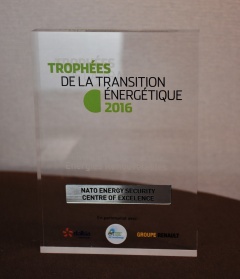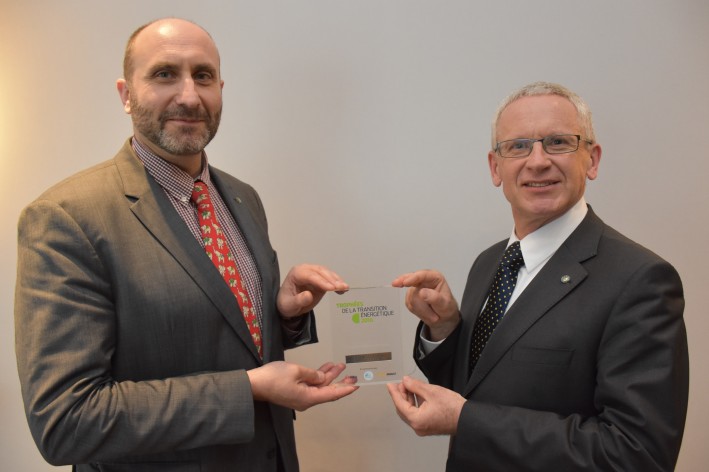NATO Energy Security Centre of Excellence won a trophy in Renewable Energy field
On 7th June, Energy Transition Trophy 2016 awards were held in Paris, France, organized by Usine Nouvelle, the main professional Press Group in France ( in the areas of factories, energy, renewable, energy transition building, mobility, etc). During the event NATO Energy Security Centre of Excellence was acknowledged for its Hybrid Power Generation System (The HPGS) and awarded in Renewable Energy category over 130 projects in competition.
“It is validation and recognition of our work and international cooperation. This project was recognised by experts from civilian organizations, therefore it means that Energy Transition is essential not just for civilian world but also for military“, - Deputy Director of NATO ENSEC COE Lieutenant Colonel Nicolas Henry said.
The presented project was the HPGS – a hybrid power generation system that would replace gasoline generators and decrease fuel using by around 30 percent. The hybrid modular system of production and management of energy is now being used by Lithuanian Armed Forces for experimental period and will soon be deployed for the first time in internation exercise „Sabre Strike 2016“.
The Deployable Modular Hybrid Power Generation and Management System uses conventional fuel and renewable sources, such as wind and solar energy. The electricity power obtained through renewable sources is charged into batteries for storing it there. The system will be used to improve energy efficiency and diminish dependence from conventional power sources decreasing the logistic footprint of troops in operation, creasing by the same risks associated, cost and need of escort of logistic convoys. The new system is capable of supplying power to a 100 size headquarter, hospital of equivalent unit.
The Deployable Modular Hybrid Power Generation and Management System was developed on Canadian funding. Canada made a contribution of CAD 1 million to the project of the NATO ENSEC COE on the basis of its growing relevance in the region.


